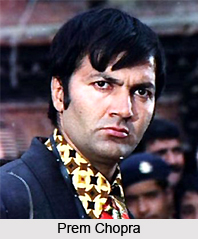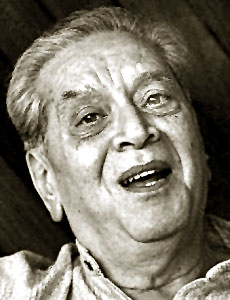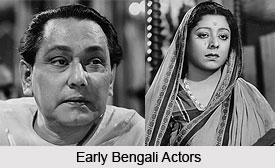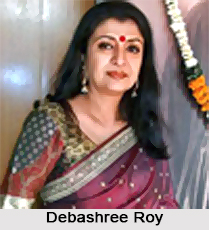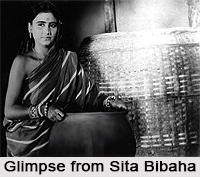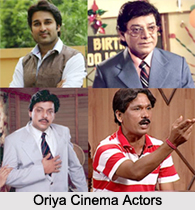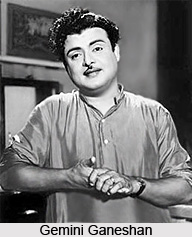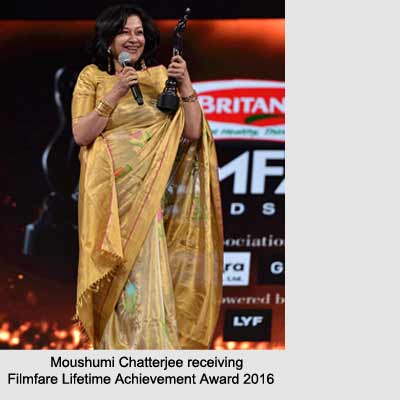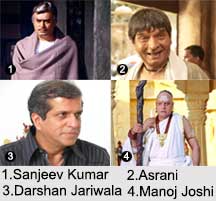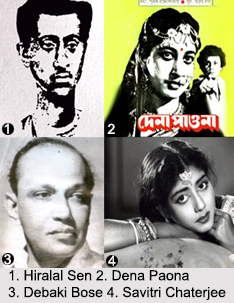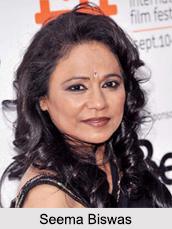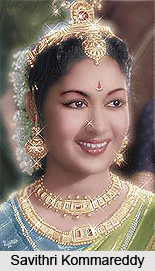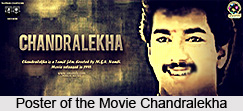 The history of Tamil cinema is as old as the history of Indian cinema. Needless to say Tamil films have evolved over the ages. At the beginning mostly mythological films were made. But with time romantic films, comic flicks and parallel cinema came into being. Some of the popular Tamil cinemas are Kalidas, Lavakusa, Balayogini, Ambikapathy, Seva Sadan, Ashok Kumar, Nandanar and many others. Some of the landmark films in the history of Tamil films are the following:
The history of Tamil cinema is as old as the history of Indian cinema. Needless to say Tamil films have evolved over the ages. At the beginning mostly mythological films were made. But with time romantic films, comic flicks and parallel cinema came into being. Some of the popular Tamil cinemas are Kalidas, Lavakusa, Balayogini, Ambikapathy, Seva Sadan, Ashok Kumar, Nandanar and many others. Some of the landmark films in the history of Tamil films are the following:
1931 - Kalidas: Directed by H.M. Reddy, the film starred T.P. Rajalakshmi, Thevaram Rajambal, T. Sushila Devi and L.V. Prasad. The first sound film of Tamil cinema, it was based on the Indian legend about poet-playwright Kalidasa. A princess is tricked into marrying the illiterate cowhand and prays to the goddess Kali who bestows literary genius on the groom - hence his name, Kalidasa. The film included approximately 50 songs, and the dialogues were in Tamil, Telugu and Urdu.
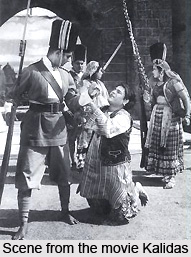 1934 - Lavakusa: Directed by C. Pullaiah, the film starred Parepalli Subba Rao, Sriranjani Sr., Master Bhimarao, Malleshwara Rao and Parepalli Satyanarayana. This Tamil film is based on the episode of the epic Ramayana and deals with Sita`s twin boys Lava and Kusa. Their indomitable courage in blocking the progress of the ceremonial horse of the `asvamedha` yagya being performed by Rama is shown. The film was the singer Sriranjani`s debut film and the Telugu version ran for more than a year in some parts of Andhra Pradesh.
1934 - Lavakusa: Directed by C. Pullaiah, the film starred Parepalli Subba Rao, Sriranjani Sr., Master Bhimarao, Malleshwara Rao and Parepalli Satyanarayana. This Tamil film is based on the episode of the epic Ramayana and deals with Sita`s twin boys Lava and Kusa. Their indomitable courage in blocking the progress of the ceremonial horse of the `asvamedha` yagya being performed by Rama is shown. The film was the singer Sriranjani`s debut film and the Telugu version ran for more than a year in some parts of Andhra Pradesh.
Balayogini: Directed by K. Subramanyam, the film starred K. Vishwanathan, R. Balasaraswathi, Baby Saroja, and V.R. Chellam. A Brahmin widow and her daughter are compelled to seek shelter with a lower-caste person. This upsets the caste-conscious Brahmins of the village. The casting was amazing. The role of the Brahmin widow was played by Chellam who was herself a Brahmin widow. Societal fury notwithstanding, the film makers - themselves Brahmins - proceeded to make other me conoclastic films. The director was pronounced an outcaste by other Brahmins - he chose to go far beyond caste issues and make Thyagabhoomi.
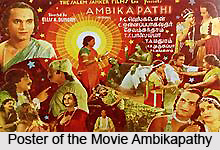 1937 - Ambikapathy: Directed by Ellis R. Duncan, the film starred Thyagaraja Bhagavathar, Serukalathur Sama, P.B. Rangachari, N.S. Krishnan, T.S. Balaiah and P.R. Mangalam. The hero is the son of the 11th century poet Kambar (author of Kambaramayana); the heroine is a princess. The king is willing to consent to their match provided the hero can prove his will-power. The film was highly successful and the second renowned historical film after Raja Desingu. The singer-musician K.C. Dey surpassed with his music. Bhagavathur achieved critical fame with this film.
1937 - Ambikapathy: Directed by Ellis R. Duncan, the film starred Thyagaraja Bhagavathar, Serukalathur Sama, P.B. Rangachari, N.S. Krishnan, T.S. Balaiah and P.R. Mangalam. The hero is the son of the 11th century poet Kambar (author of Kambaramayana); the heroine is a princess. The king is willing to consent to their match provided the hero can prove his will-power. The film was highly successful and the second renowned historical film after Raja Desingu. The singer-musician K.C. Dey surpassed with his music. Bhagavathur achieved critical fame with this film.
1938 - Seva Sadan: Directed by K. Subramanyam, the film starred M.S. Subbulakshmi, F.G. Natesa Iyer, Mrs. Jayalakshmi, Varadachar and Rampiary. It is a ground-breaking film on the relevant issues of women`s emancipation. Based on Premchand`s Urdu novel. The Tamil version had the author`s approval as Subramanyam had the courage to hold good to the novel`s plot concerning prostitution and related matters. To appease the die-hards, Subramanyam presented the film as a musical. The film marked Subbulakshmi`s debut.
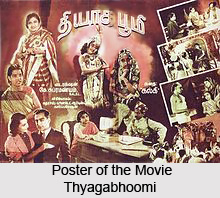 1939 - Thyagabhoomi: Directed by K. Subramanyam, the film starred S.D. Subbulakshmi, Papanasam Sivan, Baby Saroja, A.K. Kamalam, and K.J. Mahadevan. A priest, characterized on Mahatma Gandhi, incurs the villagers` wrath for providing shelter to Harijans. He leaves with his daughter for the city: the daughter gets married to a wayward man who eventually sees the light, while the priest devotes himself to social work. The film focused on the daughter`s courage. The freedom of women was an important topic for Subramanyam, and he included documentary footage on Mahatma Gandhi. Tamil Nadu was the scene of the Temple Entry movement and this was echoed in the scene of Harijans waiting at the temple doors.
1939 - Thyagabhoomi: Directed by K. Subramanyam, the film starred S.D. Subbulakshmi, Papanasam Sivan, Baby Saroja, A.K. Kamalam, and K.J. Mahadevan. A priest, characterized on Mahatma Gandhi, incurs the villagers` wrath for providing shelter to Harijans. He leaves with his daughter for the city: the daughter gets married to a wayward man who eventually sees the light, while the priest devotes himself to social work. The film focused on the daughter`s courage. The freedom of women was an important topic for Subramanyam, and he included documentary footage on Mahatma Gandhi. Tamil Nadu was the scene of the Temple Entry movement and this was echoed in the scene of Harijans waiting at the temple doors.
1942 - Ashok Kumar: Directed by Raja Chandrasekhar, the film starred M.K. Thyagaraja Bhagavathar, Chittor V. Nagaiah, P. Kannamba, T. 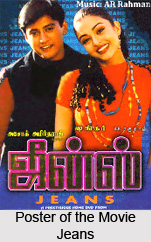 V. Kumudini, N.S. Krishnan, Ranjan and M.G. Ramachandran. The Mauryan king Ashokas second wife develops a passion for her stepson, but he loves another. She falsely accuses him, resulting in Ashoka exiling him and ordering him to be blinded. The Buddha heals the prince`s eyesight once Ashoka has repented. The film was immensely successful - Bhagavathar`s performance (as the prince) dominated the film and the music has since passed into Tamil lore.
V. Kumudini, N.S. Krishnan, Ranjan and M.G. Ramachandran. The Mauryan king Ashokas second wife develops a passion for her stepson, but he loves another. She falsely accuses him, resulting in Ashoka exiling him and ordering him to be blinded. The Buddha heals the prince`s eyesight once Ashoka has repented. The film was immensely successful - Bhagavathar`s performance (as the prince) dominated the film and the music has since passed into Tamil lore.
Nandanar: Directed by Murugadasa, the film starred Dandapani Desikar, Serukalathur Sama, Narayana Rao, and Rajam Iyengar. This was a `Saint film`. A lower-caste worker`s (Desikar) desire to worship at the Chidambaram temple - and his gradual rise to the status of a saint. His landlord gives his conditional consent for the temple visit and the worker succeeds in his task. However, once at the temple, he purifies himself (i.e. of his lower-caste origins) by stepping through fire.
Chandralekha (1948), Velaikkari (1949), Avvaiyyar (1953)
Marumagal, Kadalikka Neramillai (1964), Ulagam Sutrum Valiban (1973), Avargal (1977), Murattu Kalai (1980), Gentleman (1993), Kadhalan (1994), Indian (1995), Jeans (1998), Mudhalvan (2004), Anniyan (2004)








